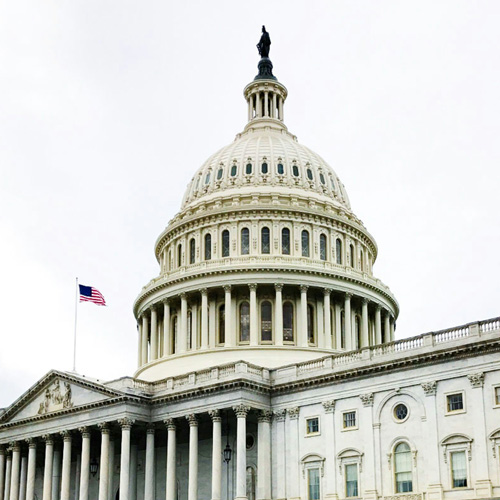For the estate planning community, 2024 feels like the calm before the storm.
 Since the 2020 enactment of the federal SECURE Act (which significantly changed planning for IRAs and qualified employer retirement plans) and the Illinois Trust Code (which overhauled trust administration rules for Illinois trusts), there have been relatively modest changes in federal and Illinois law impacting estate planning. For our Florida clients, there have been a few notable, if not dramatic, changes. These include enactment of the Florida Community Property Trust Act (allowing elective community property trusts), legislation to permit the grantor of a Spousal Lifetime Access Trust (a “SLAT”) to be a trust beneficiary after the grantor’s spouse’s death without subjecting the trust to the grantor’s state law creditors, and lengthening Florida’s perpetuities period from 360 to 1,000 years.
Since the 2020 enactment of the federal SECURE Act (which significantly changed planning for IRAs and qualified employer retirement plans) and the Illinois Trust Code (which overhauled trust administration rules for Illinois trusts), there have been relatively modest changes in federal and Illinois law impacting estate planning. For our Florida clients, there have been a few notable, if not dramatic, changes. These include enactment of the Florida Community Property Trust Act (allowing elective community property trusts), legislation to permit the grantor of a Spousal Lifetime Access Trust (a “SLAT”) to be a trust beneficiary after the grantor’s spouse’s death without subjecting the trust to the grantor’s state law creditors, and lengthening Florida’s perpetuities period from 360 to 1,000 years.
Arguably, the most significant change for residents of any state has come from the higher inflation and interest rates of the last couple of years after a prolonged period of historically-low rates. The higher inflation rate has caused marked increases in the federal gift tax annual exclusion amount and the federal estate, gift, and generation-skipping transfer (“GST”) tax exemptions, all of which are indexed annually for inflation, as reflected on the following chart:
2022
2023
2024
Federal Estate, Gift, and GST Tax Exemptions
$12,060,000
$12,920,000
$13,610,000
Federal Gift Tax Annual Exclusion Amount
$16,000
$17,000
$18,000
Federal Estate, Gift, and GST Tax Exemptions
2022
$12,060,000
2023
$12,920,000
2024
$13,610,000
Federal Gift Tax Annual Exclusion Amount
2022
$16,000
2023
$17,000
2024
$18,000
Before 2017, the federal estate, gift, and GST tax exemptions were set at $5,000,000, indexed for inflation from 2011. The 2017 federal tax legislation doubled these exemptions to $10,000,000, still indexed for inflation from 2011, resulting in the inflation-adjusted exemptions above. However, that legislation applies only through December 31, 2025, with a built-in “sunset” on January 1, 2026. Therefore, absent congressional action, the $10,000,000 pre-inflation-adjustment number will revert on January 1, 2026 to $5,000,000. It is too early to know if that sunset will occur, or, alternatively, if Congress will act before 2026 to make the doubling permanent or otherwise change the estate, gift, and GST tax rules. However, the inflation adjustments are not subject to sunsetting. Accordingly, even if the sunset occurs and the exemptions are cut in half, the federal estate, gift, and GST tax exemptions will be at least $7,000,000 in 2026.
The Illinois estate tax exemption remains fixed at $4,000,000, and, unlike the federal estate tax exemption, any unused exemption of a first spouse to die may not be transferred (“ported”) to their surviving spouse. However, Illinois continues to have two beneficial tax rules: the non-taxability of IRA distributions and the absence of a gift tax.
Florida, of course, has even more favorable tax rules, with no estate, gift, or income tax.
The period of relative calm for the estate planning community likely will end soon, as uncertainty regarding the federal tax law sunset will have more pronounced planning implications as 2026 approaches. While we can hope that Congress will provide certainty on the 2026 rules well before they take effect, past experience suggests that we will not know those rules until the very end of 2025. Given capacity limitations for estate planners, accountants, financial advisors, and financial institutions, those who wait until the latter part of 2025 to decide on a gifting plan might not be able to implement that plan before the law potentially changes in 2026.
We continue to recommend thoughtful and proactive planning for those who potentially have federal or state estate tax exposure and, depending on the situation, encourage the following:
- Make annual exclusion gifts ($18,000 per recipient for 2024), do so early in the calendar year, and consider direct gifts of tuition and medical expenses, which do not have a dollar-amount limit.
- For large personal and charitable gifts, start with flexible, simple-to-administer techniques such as SLATs, descendants’ dynasty trusts, and, for charitable gifts, donor-advised funds. In addition, use traditional IRAs and qualified employer retirement plans to fund desired charitable gifts at death.
- Reconsider sophisticated estate planning techniques that generally work best when interest rates are high. These techniques, which are starting to return to favor after a long dormant period, include charitable remainder trusts (“CRTs”), charitable gift annuities, and qualified personal residence trusts (“QPRTs”), among others.
- Continue to consider techniques that work best when interest rates are low, such as grantor retained annuity trusts (“GRATs”), sales to defective grantor trusts, and charitable lead trusts (“CLTs”), recognizing that, while current interest rates are high relative to those in recent years, they are still lower than at many times in the past 50 years.
- For those individuals who have used their full lifetime gift tax exemption through 2023, gift the additional $690,000 from the 2024 lifetime gift tax exemption inflation adjustment noted above.
- For individuals who desire to minimize federal estate taxes, have not yet used their full lifetime gift tax exemption, and have a sizable enough estate to do so without impacting their own financial security, consider implementing large gifting strategies well before the anticipated late-2025 rush.
- For individuals who desire to use their current lifetime gift tax exemption only if that exemption is actually going to decrease in 2026, make a game plan for gifting in advance, even if waiting until closer to 2026 to decide whether to implement that plan.
- For Illinois residents with current Illinois estate tax exposure, consider gifts above and beyond annual exclusion, tuition, and medical expense gifts. Such taxable gifts do not always reduce federal estate tax exposure because of the integrated federal estate and gift tax system, but they almost always reduce Illinois estate tax exposure due to the absence of an Illinois gift tax and the manner in which the Illinois estate tax is calculated. To take an extreme example, an Illinois resident individual with a $100,000,000 estate that gifts $99,900,000 the day before death will reduce their Illinois estate tax from over $13,000,000 to $0.
- As always, make sure that all non-tax aspects of an estate plan (including proper asset titling and beneficiary designations, organization of important personal and financial information, and communication of end-of-life wishes) have been addressed.
STAY IN THE LOOP
Subscribe to our free newsletter.
For the estate planning community, 2024 feels like the calm before the storm...
As with federal and Illinois tax and trust law, recent law changes related to special needs planning have been modest but important...
A federal court ruling and subsequent appeal have created uncertainty about the constitutionality of the Corporate Transparency Act, the federal statute that came into effect in 2024 with new reporting requirements for privately-held LLCs, corporations, and partnerships. While the appeal proceeds, the clock is ticking for such entities to either comply with the statute’s reporting requirements or potentially face stiff penalties...
This February marked the 25th anniversary of our practice. That milestone fills us with gratitude – for our incredible team, for the outstanding professional advisors with whom we have collaborated, and especially for the caring, thoughtful, and interesting individuals and families who have placed their trust in us...






